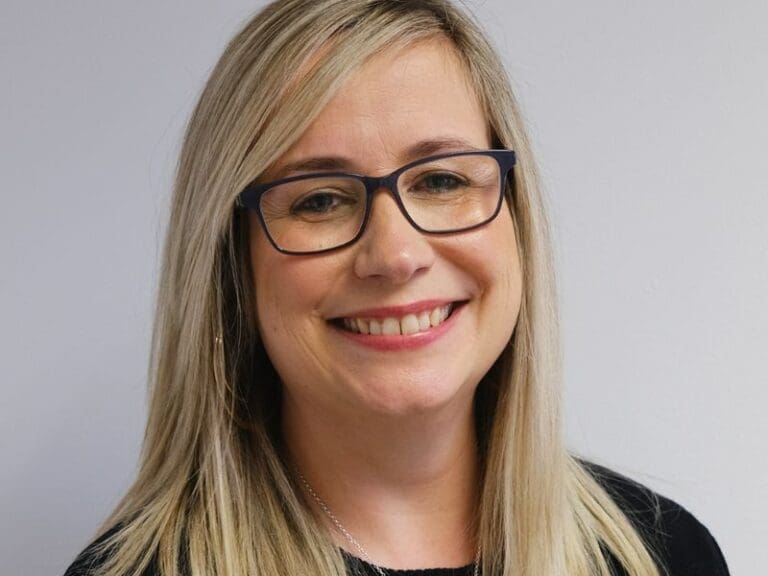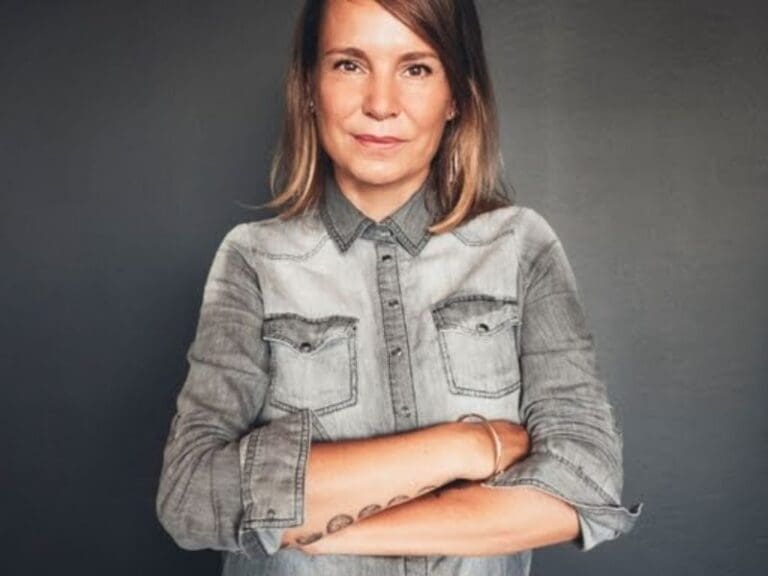Alyssa Sliney is Senior Vice President of EMEA Delivery at Syniti, a global leader in enterprise data management.
Alyssa began her career with the company nearly 20 years ago as an intern and has since risen through the ranks to become a key leader.
Now based in EMEA, Alyssa leads delivery quality, customer success, and regional revenue growth while continuing to oversee Syniti’s governance practice. She is widely recognised as a thought leader in her field and is frequently sought out by clients and the media for her insights.
Alyssa holds a bachelor’s degree in Computer Information Systems from Bentley University in Massachusetts, USA.
There’s no one path to success in tech – here’s mine
If ideas about what a career in tech should look like are holding you back, I’m here to tell you there is no one way to progress in this industry and find success.
For example, it could be easy to imagine that someone in a career like mine will have been surrounded by technology from an early age. And while that might be true for many people in the tech industry, I’m the opposite. We didn’t have the internet at home until I was in high school for example. And I think the very fact that it wasn’t so easily available to me sparked a real interest in tech that has only deepened over the years.
My journey to this point has not been typical either. It’s pretty common to find that people in my position have experience in a number of companies, and yes, this can be a great way to build skills and make connections. But it’s not the only way.
I started an internship with Syniti while I was studying for a degree in Computer Information Services and have progressed through the company, where you’ll find me now a year into my role as EMEA Senior Vice President.
My experience as an intern gave me opportunities to prove myself that my peers weren’t getting. And I had some amazing mentors. I spent a summer on a customer site where the programme lead gave me a crash course in consulting. I travelled to Italy with the head of learning and development to teach a course. And a consultant I sat next to mentored me for a year on my communication and issue management.
Getting unstuck
I had accelerated really quickly on my first few projects, but by the time I reached my mid 20s I had stalled. I had spent two years working on the same project and was struggling to figure out how to move to the next level. I felt stuck.
It wasn’t intentional, but looking back I can see that building my profile and creating a network was key to unlocking opportunities. I spoke up at our annual conference and connected with colleagues from outside my project: this led to the right person noticing me and giving me my next challenge. If it hadn’t been for them, I could have ended up on a different path.
And actually that is one of my biggest lessons to share. At the time, I didn’t realise how important it was to actively shape my own path. Now, I see that being intentional doesn’t mean having every step planned, it means knowing what you need to grow and asking for it. I’ve never had my sights set on an end goal and that’s worked for me, but being more direct about what I wanted could have made things easier for others to support me.
Adventures in leadership
Those early experiences of mentorship and opportunity set the foundation for my leadership journey, even though my first leadership role was anything but conventional. I only found out I was the project lead on my first day on the job. It was a baptism of fire, I had to learn a lot very quickly and let go of the idea that everything has to be perfect all the time. I also discovered how important a strong, supportive team can be. Together we got the job done and it was an amazing start to becoming the type of leader I wanted to be.
It’s that idea of being intentional again. When I started out as a leader, I didn’t have a plan about how to interact with my team and help them develop. But as I’ve grown in confidence and learnt more about what makes a strong leader, I see where I can add value. And while I can’t claim to be perfect, I’m thoughtful about how to approach challenges, more comfortable with difficult conversations and take time to listen.
I am definitely still on my career journey and there is plenty more for me to get my teeth into. Growing our EMEA business is my main focus right now. Doing it in a way that creates opportunity for the resources I already have and makes space for those joining us in a sustainable way is a big task, and one I’m excited to take on.
The best career advice I’ve ever had (and what I’d add)
It was my dad who taught me that if you’re going to do something, it’s worth doing it right. That advice has been so valuable throughout my career. It actually comes from when I worked for him growing up, and at the time meant checking that silverware was clean when setting the table or picking something off the floor as I walked by. But it is so applicable to the kind of work I do now. It’s often the small details that make the biggest difference.
For my part, the advice I’d like to pass on is to figure out your strategy for learning. The faster you can pivot and understand new technology (and not just follow the trends), the more valuable you will be. So think about what you want or need to learn, and how you learn best. If you learn by doing for example, look for opportunities to try out new things. If you learn by talking through ideas, find people who share your interests to test out new theories and approaches.
Tech needs you
The great news is that the tech industry is more accessible than ever – which can only be a good thing. Given how technology like AI for example is growing in scope and influence, having diverse perspectives is going to be even more important. It’s only by having a real variety of voices and ideas that we’ll get the best results. So whether you’re considering a move into the tech industry, or you’re already there and are ready to progress, I say go for it. And if you’re wondering whether your skills or experience are the right fit, remember there’s more than one way to get ahead. Whether you grew up without tech or you’ve spent your life surrounded by it, what’s most important is what you bring in terms of ideas and potential.








